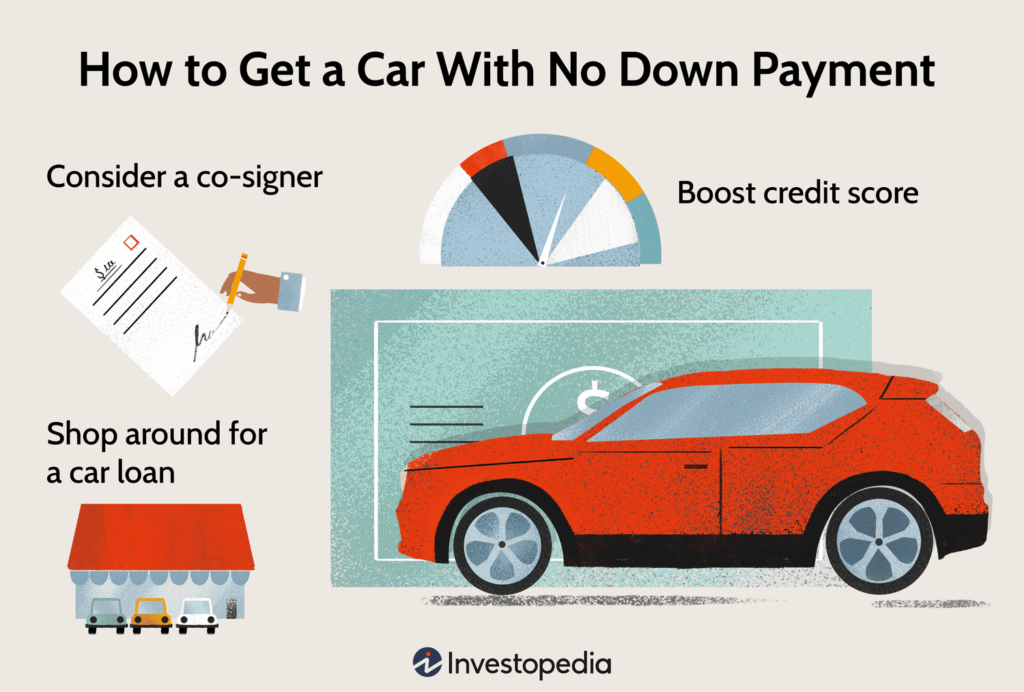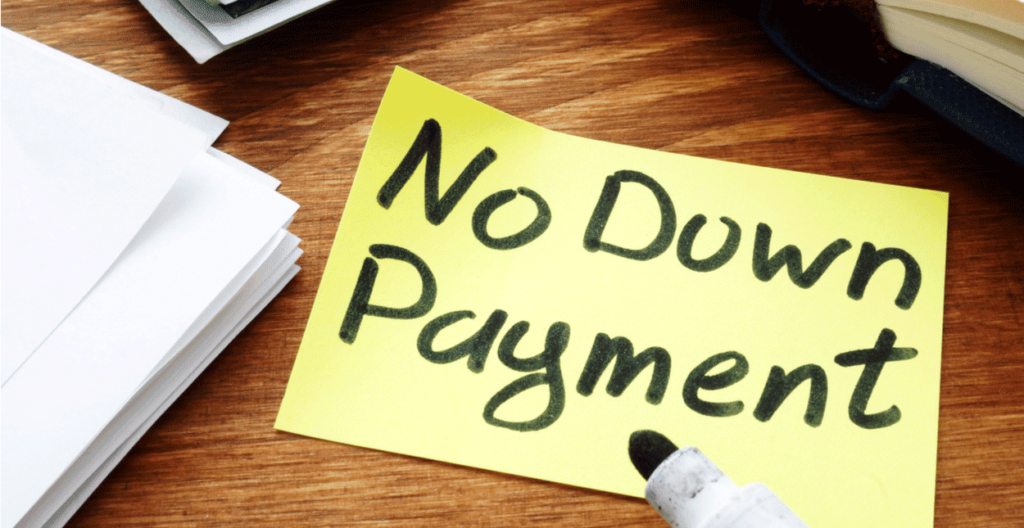Securing financing for a car can be a daunting task, especially if you have bad credit and limited funds. But fear not, as I have delved into the world of car financing to shed some light on this seemingly impossible proposition. In this article, I will explore the options available for those with poor credit and little to no savings to finance a car. From exploring alternative lenders to understanding the importance of a down payment, we will uncover strategies and insights to help you navigate this challenging situation. So, if you’re ready to take the wheel despite your financial setbacks, let’s dive into the world of car financing and explore how you can finance a car with bad credit and no money down.
Finding Car Dealerships that Finance with Bad Credit and No Money Down

Researching car dealerships that specialize in bad credit financing
When searching for car dealerships that finance with bad credit and no money down, it is important to conduct thorough research to find reliable and reputable options. Start by looking for dealerships that specialize in working with individuals who have poor credit scores. This specialization indicates that they have experience helping customers with similar financial situations. Additionally, consider reaching out to friends, family, or colleagues who have had success financing a car with bad credit and no money down. Their personal recommendations can help guide your search and provide valuable insights.
Exploring online resources for finding car dealerships that finance with no money down
The internet is a valuable tool when it comes to finding car dealerships that offer financing options for individuals with bad credit and no money down. Utilize online resources such as websites and forums that provide information and reviews on different dealerships. These platforms allow you to gather knowledge about the reputation and reliability of various dealerships, helping you make an informed decision. Take advantage of search engines and directories that focus specifically on bad credit car financing to streamline your search and find relevant options.
Reading customer reviews and ratings to choose a trustworthy dealership
One of the crucial steps in finding a dealership that offers financing with bad credit and no money down is reading customer reviews and ratings. This will give you valuable insights into the experiences of past customers, providing an indication of the dealership’s credibility and trustworthiness. Look for reviews that specifically mention the financing process and customer service, as these aspects are particularly important when dealing with bad credit financing. Choose a dealership with a track record of positive reviews and high ratings to ensure a smooth and reliable financing experience.
Understanding the Requirements for Financing a Car with Bad Credit and No Money Down
Knowing the credit score criteria for obtaining financing with bad credit
When financing a car with bad credit, it is essential to understand the credit score criteria that lenders consider. While each lender may have slightly different requirements, it is generally more challenging to secure financing with a low credit score. The specific minimum credit score required for approval will vary, but typically a score of 580 or below is considered to be poor. However, it is important to note that some lenders specialize in working with individuals with extremely low credit scores, offering options for those who may not qualify elsewhere.

Understanding the income and employment requirements
In addition to considering your credit score, lenders also assess your income and employment status when determining your eligibility for financing with bad credit and no money down. Typically, lenders prefer borrowers who have a stable source of income and have been employed for a certain length of time. This provides them with assurance that you have the financial ability to make timely payments. Proof of income, such as pay stubs or bank statements, may be required during the financing process to verify your ability to repay the loan.
Identifying the documents and paperwork needed for the financing process
Before applying for car financing with bad credit and no money down, it is important to gather all the necessary documents and paperwork. This will ensure a smooth and efficient application process. Common documentation needed includes a valid driver’s license, proof of insurance, proof of income, and proof of residence. Additionally, be prepared to provide information about any outstanding debts or financial obligations. Gathering and organizing these documents beforehand will save time and prevent any delays in your financing application.
Improving Your Chances of Approval with Bad Credit and No Money Down
Working on improving your credit score before applying for car financing
While it may be possible to secure car financing with bad credit and no money down, it is advantageous to work towards improving your credit score before applying. Start by reviewing your credit report and identifying any errors or discrepancies. Dispute any inaccuracies to ensure your credit score is based on correct information. Additionally, make an effort to pay off any outstanding debts or collections accounts to reduce your debt-to-income ratio. Establishing a positive payment history by consistently paying all bills on time can also help improve your credit score over time.
Saving money for a down payment to increase lender confidence
Although the goal is to find car financing with no money down, saving for a down payment can significantly increase your chances of approval. Lenders often view a down payment as a sign of commitment and financial responsibility. It shows that you are willing to invest your own money into the purchase, decreasing the lender’s risk. Even a small down payment can make a difference and open up more financing options. Consider setting aside a portion of your income each month specifically for the purpose of building a down payment.

Seeking a co-signer or guarantor to strengthen your creditworthiness
Another option to improve your chances of approval for car financing with bad credit and no money down is to enlist the help of a co-signer or guarantor. A co-signer is an individual with good credit who agrees to take on the responsibility of repaying the loan if you default. This provides lenders with an additional layer of security and increases your creditworthiness in their eyes. However, it is important to choose a co-signer who fully understands the responsibilities and risks involved. Open and transparent communication is crucial to maintain a healthy relationship throughout the financing process.
Exploring Special Financing Programs for Bad Credit and No Money Down
Finding out about manufacturer-sponsored finance programs for bad credit
Many car manufacturers offer special financing programs specifically designed for individuals with bad credit and no money down. These programs often provide more lenient credit score criteria and lower down payment requirements compared to traditional lenders. Research different manufacturers to see if they have any ongoing promotions or offers tailored to individuals in your financial situation. Take advantage of these programs to potentially secure more favorable financing terms and increase your chances of approval.
Researching government-assisted car financing options
In some cases, government assistance programs may be available to help individuals with bad credit and no money down finance a car. These programs are typically administered at the state or local level and aim to provide transportation options for individuals in need. Research your local government websites or reach out to social service agencies to inquire about any available car financing programs. While these programs may have certain eligibility criteria, they can be a valuable resource for those who are struggling to secure traditional financing.
Considering credit union loans or alternative lending sources
If traditional lenders are not able to provide car financing with bad credit and no money down, it may be worth exploring credit union loans or alternative lending sources. Credit unions are member-owned financial institutions that often offer more flexible lending terms and lower interest rates compared to traditional banks. They are more likely to consider your individual circumstances and may be willing to work with you despite your bad credit. Additionally, alternative lending sources, such as online lenders or peer-to-peer lending platforms, may also provide options for individuals with less-than-perfect credit.
Negotiating the Terms and Conditions of the Car Financing Deal

Understanding interest rates, loan terms, and monthly payments
When negotiating the terms and conditions of your car financing deal, it is important to have a comprehensive understanding of the key components. Interest rates, loan terms, and monthly payments are crucial factors that will impact the overall cost of your loan. Take the time to research average interest rates for individuals in your credit score range to ensure you are getting a fair deal. Consider the length of the loan term and how it will affect your monthly payments. Always aim for a monthly payment that is within your budget to avoid financial strain.
Negotiating for a longer loan term to reduce monthly payment burdens
If you find that the monthly payments for a car financing deal with bad credit and no money down are too high for your budget, consider negotiating for a longer loan term. Extending the loan term can help reduce your monthly payment burden by spreading the cost of the loan over a longer period. However, it is important to understand that a longer loan term means paying more in interest over time. Evaluate your financial situation carefully and weigh the benefits and drawbacks before making a decision.
Avoiding predatory lending practices and excessive fees
When negotiating the terms of your car financing deal, it is crucial to be aware of predatory lending practices and excessive fees. Some lenders may take advantage of individuals with bad credit by charging exorbitant interest rates or including unnecessary fees. Read the fine print of the financing agreement carefully and ask questions if anything seems unclear or unfair. It may be worth seeking the assistance of a financial advisor or attorney to ensure you fully understand the terms and conditions before signing any agreements. Be cautious and choose a lender who operates transparently and ethically.
Evaluating the Total Cost of Ownership for the Financed Car
Considering the additional expenses of owning a car, such as insurance and maintenance
When financing a car, it is essential to consider the additional expenses associated with owning a vehicle. Apart from the monthly loan payments, you will need to budget for expenses such as car insurance, routine maintenance, and repairs. Research the average costs of car insurance in your area and factor it into your monthly budget. Additionally, consider the expected maintenance and repair costs based on the make and model of the car you are financing. Understanding the total cost of ownership will help you make an informed decision about the affordability of the vehicle.

Researching fuel efficiency and anticipated fuel costs
Another important factor to consider when evaluating the total cost of ownership for a financed car is its fuel efficiency. Fuel costs can significantly impact your monthly budget, especially if you have a long commute or use the car frequently. Research the fuel efficiency ratings of different vehicles and estimate the anticipated fuel costs based on your driving habits. Choosing a fuel-efficient car can help save money in the long run and reduce the overall cost of ownership.
Calculating the depreciation and resale value of the vehicle
It is also essential to consider the depreciation and potential resale value of the financed car. Cars generally depreciate in value over time, so it is important to understand how this may affect your investment. Research the depreciation rates for the specific make and model of the car you are considering. Additionally, consider factors such as market demand and anticipated resale value. While it may not have an immediate impact on your financing, knowing the potential future value of the car can help inform your decision-making process.
Determining the Right Car for Your Budget
Setting a realistic budget based on your income and expenses
Before finalizing your decision to finance a car with bad credit and no money down, it is crucial to set a realistic budget based on your income and expenses. Calculate your monthly income and deduct your fixed expenses, such as rent/mortgage, utilities, and groceries. From the remaining amount, allocate a portion for the car loan payments, insurance, maintenance costs, and fuel expenses. Be conservative with your estimates to account for any unforeseen circumstances or emergencies. The goal is to ensure that your car expenses fit comfortably within your overall budget without placing excessive strain on your financial situation.
Looking for reliable used cars in your price range
When financing a car with bad credit and no money down, it is often advisable to consider reliable used cars. Used cars generally come at a lower price point compared to brand new vehicles, making them more affordable for individuals with limited financial resources. Research different makes and models known for their reliability and longevity. Consider purchasing from reputable dealerships or private sellers who have a history of maintaining their vehicles properly. Getting a pre-purchase inspection from a trusted mechanic can also provide peace of mind and ensure you are making a wise investment.
Considering fuel efficiency, reliability, and maintenance costs
While budget should be the primary consideration when choosing a car, it is also important to factor in fuel efficiency, reliability, and maintenance costs. A fuel-efficient car can help save money on fuel expenses over time. Similarly, choosing a reliable car with a good track record for longevity can minimize the risk of unexpected repairs and costly maintenance. Research the average maintenance costs associated with different makes and models, as certain vehicles may require more expensive parts or specialized repairs. Finding a balance between budget, fuel efficiency, reliability, and maintenance costs will help you make an informed decision.
Reading and Understanding the Financing Agreement
Reviewing the terms, conditions, and fine print of the financing agreement
Before signing any financing agreement, it is crucial to thoroughly review all the terms, conditions, and fine print. Take the time to read through the entire document and ensure you understand all the provisions and obligations. Pay attention to details such as interest rates, loan term, monthly payments, late payment penalties, and early repayment options. It may be helpful to read the agreement multiple times or seek assistance from a professional, such as a financial advisor or attorney, to ensure you fully comprehend the terms. Asking questions and seeking clarification will help prevent any misunderstandings or surprises later on.
Seeking professional assistance or advice if needed
If you find it challenging to understand the terms and conditions of the financing agreement, do not hesitate to seek professional assistance or advice. A financial advisor or attorney with expertise in car financing can help you navigate the complexities of the agreement and ensure that your rights are protected. They can provide valuable insights and answer any questions you may have about the agreement. Remember, it is better to invest in professional assistance upfront rather than facing potential issues or disputes down the line.
Being aware of any potential hidden costs or fees
When reviewing the financing agreement, it is essential to be aware of any potential hidden costs or fees that may not be explicitly mentioned. Although reputable lenders should disclose all relevant information upfront, it is still important to do your due diligence. Look for any language that mentions additional fees or charges that may be imposed throughout the loan term. Inquire with the lender about any specific fees that are not explicitly outlined in the agreement. Being aware of these potential hidden costs will help you make a fully informed decision and avoid any surprises in the future.
Making Timely Payments to Rebuild Credit
Setting up automatic payments or reminders to avoid missing due dates
Once you have successfully secured car financing with bad credit and no money down, it is crucial to make timely payments to rebuild your credit. Missing payments or paying them late can further damage your credit score and make it even more challenging to secure future financing. To avoid this, consider setting up automatic payments through your bank or credit union. Alternatively, set reminders on your phone or calendar to ensure you do not miss any due dates. Making consistent, on-time payments will demonstrate your financial responsibility and gradually improve your credit history.
Prioritizing car loan payments to improve credit history
When faced with multiple financial obligations, it is crucial to prioritize your car loan payments to improve your credit history. Paying your car loan on time and in full should be a top priority, as it directly impacts your credit score. By consistently making on-time payments, you are demonstrating your ability to meet your financial obligations responsibly. Over time, this will positively impact your credit history and strengthen your creditworthiness. It may require adjustments to your budget and financial priorities, but prioritizing your car loan payments is an investment in your future financial well-being.
Monitoring your credit report for any errors or discrepancies
While making timely payments is essential, it is equally important to monitor your credit report for any errors or discrepancies. Regularly reviewing your credit report allows you to identify and address any inaccuracies that may negatively affect your credit score. If you notice any errors, such as incorrect payment information or accounts that do not belong to you, be sure to dispute them with the credit reporting agencies. Taking proactive steps to correct these errors will help improve the accuracy of your credit report and ultimately benefit your creditworthiness.
Considering Alternative Transportation Options if Financing isn’t Feasible
Exploring public transportation options in your area
If securing car financing with bad credit and no money down proves to be unfeasible, it is crucial to explore alternative transportation options. Public transportation networks, such as buses, trains, or subways, can provide a reliable and cost-effective means of getting around. Research the public transportation options in your area and determine if they can adequately meet your commuting needs. While it may require adjusting your daily routine or schedule, utilizing public transportation can help you save money and avoid the financial strain of car ownership.
Considering car-sharing services or car rental options
Another alternative to consider if financing a car is not feasible is utilizing car-sharing services or renting a car as needed. Car-sharing services, such as Zipcar or Car2Go, provide convenient access to a vehicle on a short-term basis. This option allows you to have the flexibility of a car without the long-term financial commitment. Alternatively, renting a car on an as-needed basis from traditional car rental companies can provide a temporary solution for specific occasions or events. Assess your transportation needs and evaluate if these alternative options align with your lifestyle and budget.
Saving money for future car financing opportunities
If car financing with bad credit and no money down is not currently feasible, it is important to continue saving money for future opportunities. Establish a dedicated savings account specifically for the purpose of building a down payment or improving your financial situation. Set a realistic savings goal based on your income and expenses, and commit to saving consistently. As you work towards improving your credit score and financial stability, continue to research and explore car financing options that may become available in the future. By saving money and being patient, you will increase your chances of securing affordable car financing down the line.
In conclusion, financing a car with bad credit and no money down may seem challenging, but with proper research and knowledge, it can be achievable. Start by researching car dealerships that specialize in bad credit financing and exploring online resources for finding suitable options. Understand the requirements for financing, such as credit score criteria, income and employment requirements, and necessary documents. To improve your chances of approval, consider working on your credit score, saving for a down payment, or seeking a co-signer or guarantor. Explore special financing programs, negotiate terms and conditions, and evaluate the total cost of ownership. Determine the right car for your budget by setting realistic priorities and considering fuel efficiency, reliability, and maintenance costs. Finally, read and understand the financing agreement, make timely payments, and consider alternative transportation options if financing isn’t feasible. By following these steps, you can navigate the process of financing a car with bad credit and no money down successfully.


